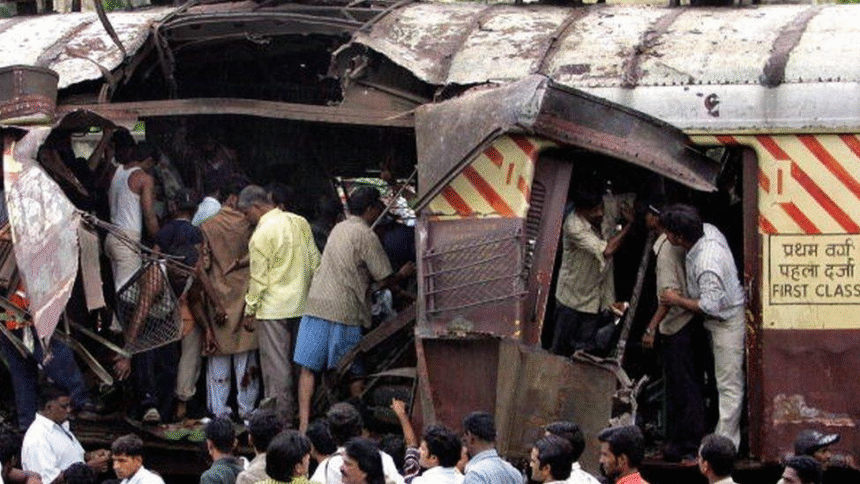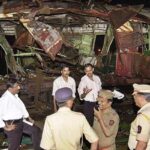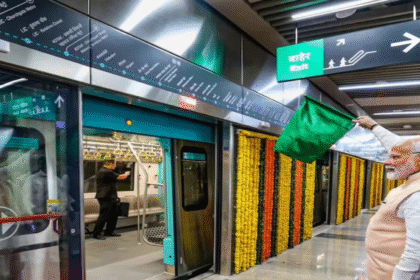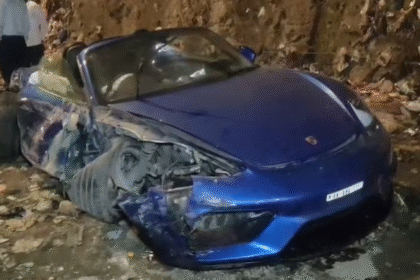Shocking Twist: All 12 Convicts Acquitted in 2006 Mumbai Train Blasts Case That Killed 189 People | After 19 Years
In a stunning development after 19 years, all 12 men convicted in the 2006 Mumbai train blasts—one of India’s deadliest terror attacks that killed 189 people—have been acquitted by the Bombay High Court
Nineteen years after the 2006 Mumbai train blasts claimed 189 lives and left over 800 people injured, the Bombay High Court today acquitted all 12 people convicted by a lower court in the serial bombing case. In 2015, a trial court had convicted these 12 accused, sentencing five of them to death and the others to life imprisonment.
Setting aside the trial court order, the high court bench of Justice Anil Kilor and Justice Shyam Chandak said the prosecution had “utterly failed” to prove the case against the accused.
“The prosecution has utterly failed to prove the case against the accused. It is hard to believe that the accused committed the crime. Hence, their conviction is quashed and set aside,” the bench said. The court said the accused shall be released from jail if they are not wanted in any other case.

The bench noted that the convicts were given the “benefit of doubt” due to the prosecution’s failure to prove the charges. The court questioned witness statements. It noted that 100 days after the blasts, it is not possible for a person to remember a suspect.
The court also said that the explosives, arms and maps recovered during the investigation appeared to be unrelated to the blasts. The prosecution, it said, could not even prove what kind of bombs were used in the blasts.
On July 11, 2006, seven bomb blasts had ripped through separate Mumbai local trains within 11 minutes. Rigged pressure cookers were used for the bombings to amplify the damage caused. The first occurred at 6.24 pm — rush hour due to people returning from work — and the last at 6.35 pm. The bombs were placed in first-class compartments of trains from Churchgate. They exploded near the stations of Matunga Road, Mahim Junction, Bandra, Khar Road, Jogeshwari, Bhayandar and Borivali.
A trial court in 2015 convicted 12 people in the blasts case. The special court of Maharashtra Control of Organised Crime Act sentenced Faisal Sheikh, Asif Khan, Kamal Ansari, Ehtesham Sidduqui and Naveed Khan to death. Seven other convicts Mohammed Sajid Ansari, Mohammed Ali, Dr Tanveer Ansari, Majid Shafi, Muzzammil Shaikh, Sohail Shaikh and Zamir Shaikh were sentenced to life imprisonment for being part of the conspiracy. All the 12 convicts will now walk free after the high court’s ruling today.

In a staggering legal reversal, the Bombay High Court on Monday acquitted all 12 men previously convicted in connection with the 2006 Mumbai train blasts, which claimed 189 lives and left over 800 injured. The decision comes nearly 19 years after the coordinated terrorist attack shocked the nation and left deep scars on Mumbai’s local rail lifeline.
On July 11, 2006, seven powerful bombs were placed in pressure cookers and detonated on Mumbai’s suburban trains during the evening rush hour. The explosions occurred within 11 minutes, targeting first-class compartments on the Western Railway line. The synchronised blasts killed 189 people and injured over 824 others, many of whom suffered lifelong physical and emotional trauma.
This was one of the most horrific terrorist attacks in Indian history and led to a nationwide outcry, widespread investigations, and a years-long legal battle.
2006: 13 accused were arrested by the Anti-Terrorism Squad (ATS) under charges including murder, conspiracy, and waging war against the nation.
2007–2014: Trial continued under the Maharashtra Control of Organised Crime Act (MCOCA).
2015: A special MCOCA court convicted 12 out of 13 accused, sentencing 5 to death and 7 to life imprisonment.
2024–2025: Bombay High Court heard appeals filed by all convicts.
July 21, 2025: High Court acquits all 12, citing lack of admissible evidence, procedural lapses, and doubts over confessions.
The Bombay High Court ruled that:
- Confessions recorded under MCOCA were not legally tenable.
- Evidence provided was largely circumstantial and lacked corroborative support.
- There were glaring inconsistencies in witness testimonies and investigative lapses by the ATS.
The court also emphasized that the “benefit of the doubt must go to the accused”, upholding legal principles despite the emotional weight of the tragedy.
Families of victims expressed shock and disbelief at the verdict. Many questioned the justice system and wondered how such a high-casualty case could end in complete acquittal after 18 long years.
- “We lost our loved ones. Now, the system has failed us again,” said one grieving relative.
- Survivors called the judgment a “slap on the face of justice.”
At the same time, rights activists pointed out concerns over wrongful convictions, emphasizing the need for fair trials backed by concrete evidence and transparency.
The verdict triggered political commentary across party lines:
- Opposition leaders called for a Supreme Court appeal, alleging miscarriage of justice.
- Legal experts warned that botched investigations in terror cases could set dangerous precedents.
- Government sources have hinted that a review petition may be filed soon.
Read Also : Shehnaaz Gill Slams Paps in Viral Video as She Adjusts Mini Dress at Mumbai Event | Watch On 20th July








